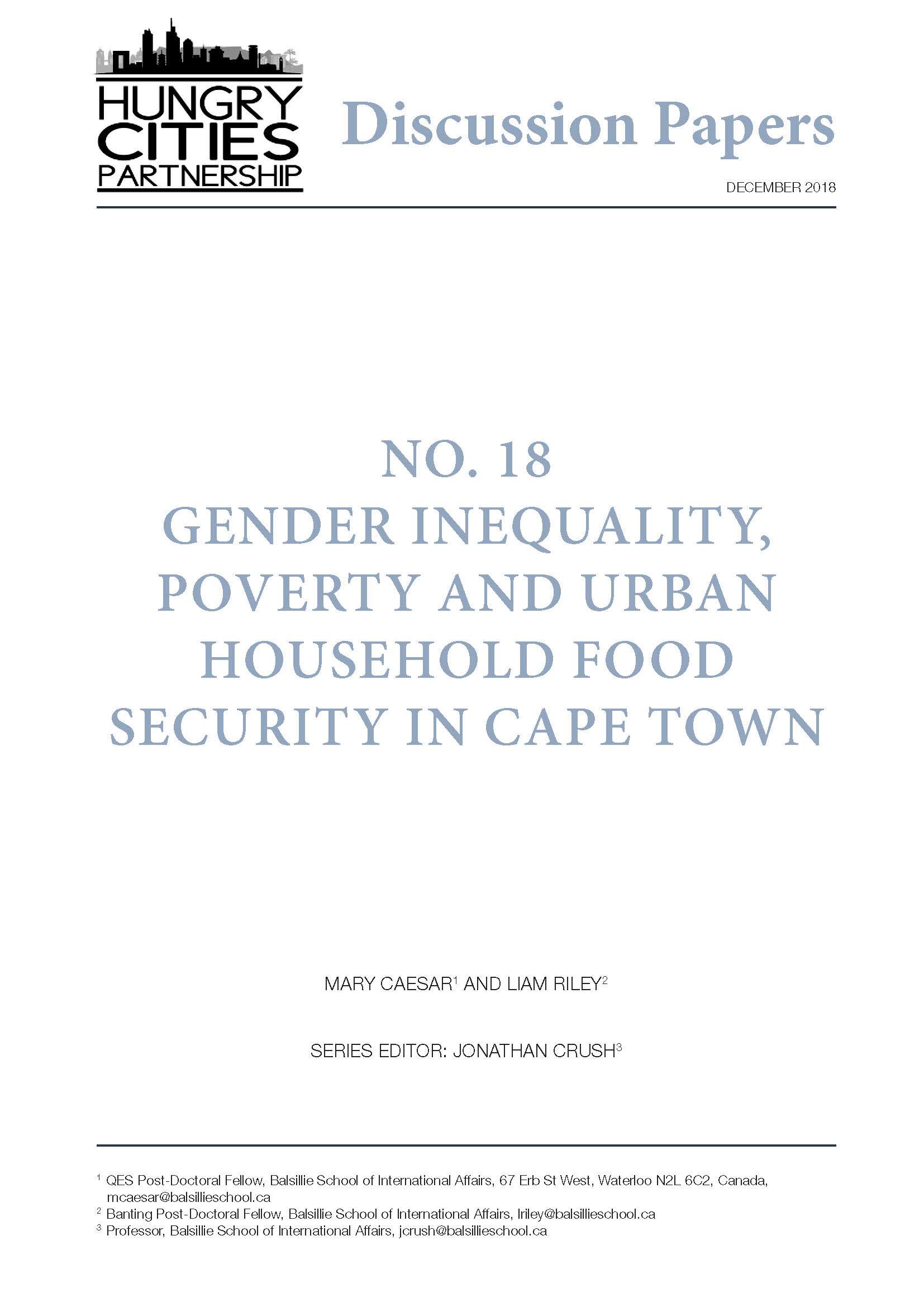This discussion paper aims to advance our understanding of the gendered nature of urban household food security and how it is shaped by the relationships between internal household gender dynamics and external social factors of gender- and race-based inequalities. The manifestation of the gender inequality-food security nexus at the household level is most evident in the different food-related roles and responsibilities adopted by women and men. These differences typically centre on tasks such as growing, purchasing, and preparing food as well as household members who undertake none of these responsibilities. Other gender-based household food security determinants include the gender of the household head and the household head’s marital status. More than 20 years after the transition to democracy in South Africa, the legacies of racial discrimination and unequal access to resources and opportunities continue to shape the food security experiences of poor and low-income households, the majority of whom are Black Africans and women. External social factors that also influence household food security status include access to employment opportunities available to men and women. By using primary household survey results from a low-income urban area in Cape Town, we demonstrate these interconnections and argue that the pervasive poverty and income inequalities overshadow important insights about the role of gender inequality in shaping urban household food security.

